Everybody is aware of the hit Disney trilogy High School Musical (HSM) which dominated TV screens, CD sales, merchandises and eventually cinema screens over the three year franchise. Critics called it the modern Romeo and Juliet with a twist to tell the youth generation not to stick to the status quo.
This text resembles Leavis approach on popular culture. Leavis always stated that film plays on ''cheap responses''. HSM does just that. The film is loaded with experiences that relate to its target audience with school years and the problem they face through peer pressure, self esteem cliques etc tat are explored throughout the three films.
These are emotions that the ordinary teen of today's society go through. They react to these responses that are cheap as they know that the young generation will lap it up and make Disney money by buying into the franchise.It can be argued that people learn to adapt the social norms of high school and accept what will be. There is also another argument that HSM does not portray real life.
When you think about it it is a little far fetched. Who would meet a guy on a holiday end up singing karaoke with him and then be transferred to a new school to become childhood sweethearts. That stuff only ever happens in Disney and Leavis theory of film by ''not learning, just watching'' could not be further from the truth for this particular Disney franchise.
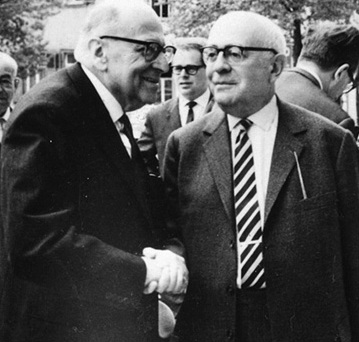
©Google Images 2013
This is a response to The Culture Industry: Enlightenment as Mass Deception by Theodor Adorro and Max Horkheimer (1944)
This reading was quite hard to understand at times due to it be written in 1944 which was well before my time. However despite the reading difficulty I feel I grasped enough of the points that they were saying in order to write a response to the reading.
Adorro and Horkheimer talk about how cultural chaos has now lead to a stamp been put on everything in modern life therefore resulting in society becoming standardized and all one in the same. I do believe in what they are saying because in today's society we are all becoming one. We all shop in the same shops listen to the same music and watch the same TV shows. Its the media relaying all the same facts and information to entertain us but in a different way to make us all seem individual.
For example lets take two music tracks
R Kelly's Ignition and Akon's Don't Matter both have the same rhythm to the song just different lyrics. So when did we become obsessed withe repetitiveness instead of questioning it?
''Society suffers a fall by the capitalist industry with other motives other than doing what they are meant to''
I agree with this quote as media industries are now more concerned over the money that comes from products than generating material for the consumers. When we look at the media as a whole everything is repeating concepts and aspects hence us walking and living in a standardization. Take an example of TV and how they are constantly reusing the same format and concepts.
Taking the pop stars concept it was just reused to incorporate two bands going head to head instead of one. Same concept same TV Channel same idea = repetitive.
A final thought from the reading is that Adorro and Horkhemer believe that the media create the illusion of individuality. ''Individuation has never really been achieved'' This quote shows how we are all the same. When you think about today's society we all eat the same things, watch the same things and everything is generated by the mass culture leading us to become one society with just one way of life.
To sum it is safe to say that this reading reflects the society that we live in today considering it was written in 1944. It is now evident that we live in a society that repeats its concepts and we are just willing to adapt to this mass culture instead of asking why?
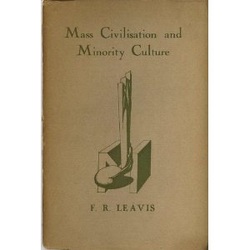
© Google Images 2013
Mass Civilization and Minority Culture by F.R Leavis.
In this reading Leavis, tries to define what exactly culture is. No culture is the word that even today's society struggle to define. He used an interesting description to define the word 'culture'...
''a kind of paper currency based upon a very small proportion of gold''
Leavis then attempts to explain this through the eyes of Shakespeare. I feel that he is portraying that everybody is aware and knowledgeable of Shakespeare's works but yet only a minority can appreciate them. Even in today's society only a specialized 'culture' of people would dare attempt to read the works of Shakespeare. I would agree with Leavis as even I wouldn't be able to apperciate the works of one of the popular culture writers but yet I know exactly who he is.
When this work was written by Leavis it was the time that mass media was on the rise and Leavis seen this as a ''culture crisis''. He feared that the rise of ''Americanization'' would lead to Britain would lack British culture that separates them fromt he rest of the world. Leavis worrie that the world would become one culture with no difference and we would all be considered as one.
I would disagree with Leavis on his opinion of the whole level of Americanization. Yes i do agree that we are more then ever like one big country as we all can speak one language been English making it easy to communicate with one another. However I feel that each and every country in the world will always have their 'culture'. Take Ireland for example, when they were ruled by Britain we fought to keep ore culture and identity. We won and to this day our culture has not been comprised with Irish sport (hurling, GAA) more played in the country than of or foreign sports like football. Every country has there own identity and culture that will always be evident even if we might adapt some areas of other cultures.
''the standardization in the form represented by the Press, it becomes obviously of sinister significance that they should be accompanied by a process of leveling-down”
One final thought on the reading is that Leavis describes the press as a system of mass production that should be leveled down.I feel that Leavis was saying that as a mass production it needs to represent a mass culture and that it don't include the ''high brow'' people he refers to in the text. I feel that he may have been right on this account. When you look at the newspapers and thier cultures there is one that fits perfectly into each culture that exists in today's society.
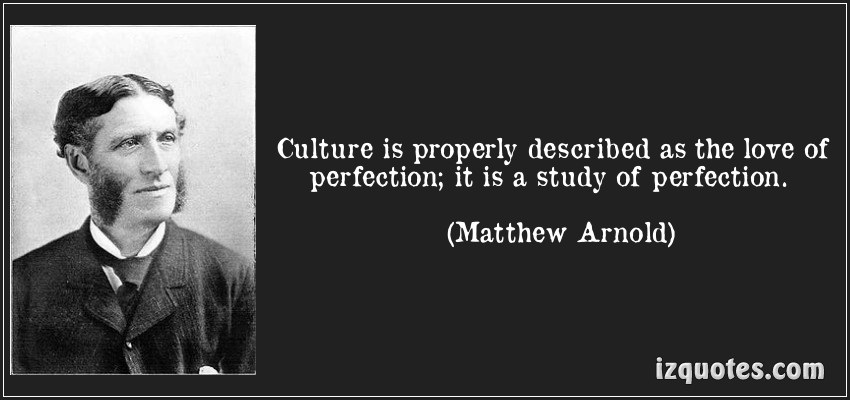
© Google Images 2013
Culture and Anarchy by Matthew Arnold.
I usually don't respond to media texts that I read but I felt intrigued by some of the texts that I had read by Arnold. Culture and Anarchy is probably the most famous of his writings have been studied by scholars over the years since it has been published. The text was published during a time where education was only for the rich and his writings talked about restructuring England's social ideology which was unheard off of back then.
The one theme that stuck out in my mind when reading his work was that culture is seeking inward perfection and helps deal with the present difficulties in today's society.
''Culture, which simply means trying to perfect oneself and one's mind''
I don't agree with Arnold and this quote. I know that culture is a very hard word to define. I like to see culture as a sense of belonging and helping to express your identity not to perfect yourself. Arnold also argues that culture leads to perfection. Again I think these opinions are outdated.
Look at culture today, anybody of any culture attends education in today's society unlike when these texts where written. The books you read, the school you go to and the knowledge you have is down to the education and the work you put into your studies not your culture. Take reality TV as an example the mass media see it as part of a culture of the ''dumbed down society'' when really anybody could watch it even those people with first class degrees. Nobody is perfect so how Arnold sees culture as a way of perfection may have worked when education was just for the rich but in today's society when education in a tacitness his opinion is null and void.
Arnold also discusses that if there is no order there is no society in which he states ''without society there is no human perfection'' . To me Arnold was obsessed with human perfection through the means of culture. However i raise the question in a society were mistakes, unemployment and political corruption exist does perfection really exist? One thing I know is that culture does not define perfection and that perfection in the soicety that we live in today does not exsit. Would you really want to live in perfection becasue lets face we all learn mistake

©ITV2
I mean I had it all, the CD's, the t-shirts, the used up concert tickets and knew every single lyric like it was a meaning to my life. Posters of my beloved 5ive boys graced my bedroom walls wishing that one day I could marry 'ABS'. So when ITV announced a new documentary that would see six of the biggest 90's band reunite I screamed with delight. (B*Witched, 911, Honzey, Liberty X, Atomic Kitten. 5ive) Suddenly the memories of my teeny bopper days were flashing before eyes. I may just be a little old to be classed as a teeny bopper these days but in my heart I will always be one. I mean this show is my culture and my identity it would just be wrong for me not to watch it. Been a teeny bopper gave me a sense of who I was that I belonged to this exclusive group that had a love for music and that these bands where my friends and my idols. I mean I cried when they split up I felt like I had gone through a break up when these bands called it a day. This documentary series relives them memories bringing me back to the good old days.
The point I just made was screened during the first episode of The Big Reunion when they showed fans reacting to the news that 5ive had split up. I will admit I sobbed liked a baby when that happened. The show also shows how fans felt like they had a particular connection to the band and even the performers agreed saying that there was nothing that they loved more than hearing their fans screaming their songs as they dance across the stage with the dodgy dancing that was fashionable back then.
So for the next couple of weeks as The Big Reunion plays out in front of my eyes I will sit there with my 5ive t-shirt on and relive my teeny bopper era that will forever be my identity and made me who I am today.
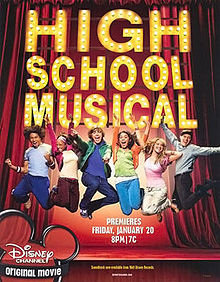
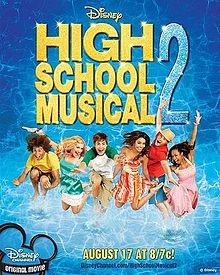



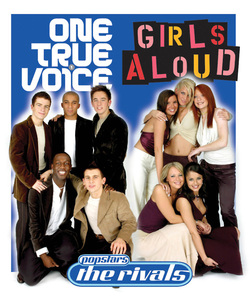



 RSS Feed
RSS Feed